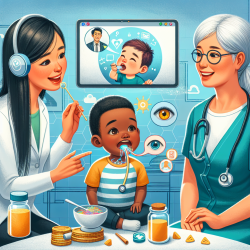Key Findings from the Case Study
The study presented an intensive, four-week telepractice program for a pediatric patient with complex medical history. The outcomes were remarkable:- Substantial improvements in oral acceptance of eating-related objects and a variety of foods.
- Significant reduction in the timing of voluntary saliva swallows.
- Improved quality of life, as reported by the patient's family.
Implementing the Outcomes
Practitioners can take away several key strategies from this study to improve their own practice:- Intensive Intervention: Incorporate high-frequency, short-duration sessions to enhance learning and retention.
- Parental Involvement: Engage parents as mediators and facilitators to ensure consistency and reinforcement of skills at home.
- Technological Adaptations: Utilize secure, user-friendly telepractice software to deliver therapy effectively.
Encouraging Further Research
While the results of this single case study are promising, further research is essential to validate these findings across larger, diverse populations. Practitioners are encouraged to:- Participate in or conduct larger studies to generalize the findings.
- Explore the feasibility and reliability of telepractice in various pediatric dysphagia cases.
- Share outcomes and experiences to build a robust body of evidence.
To read the original research paper, please follow this link: Telepractice for Pediatric Dysphagia: A Case Study










